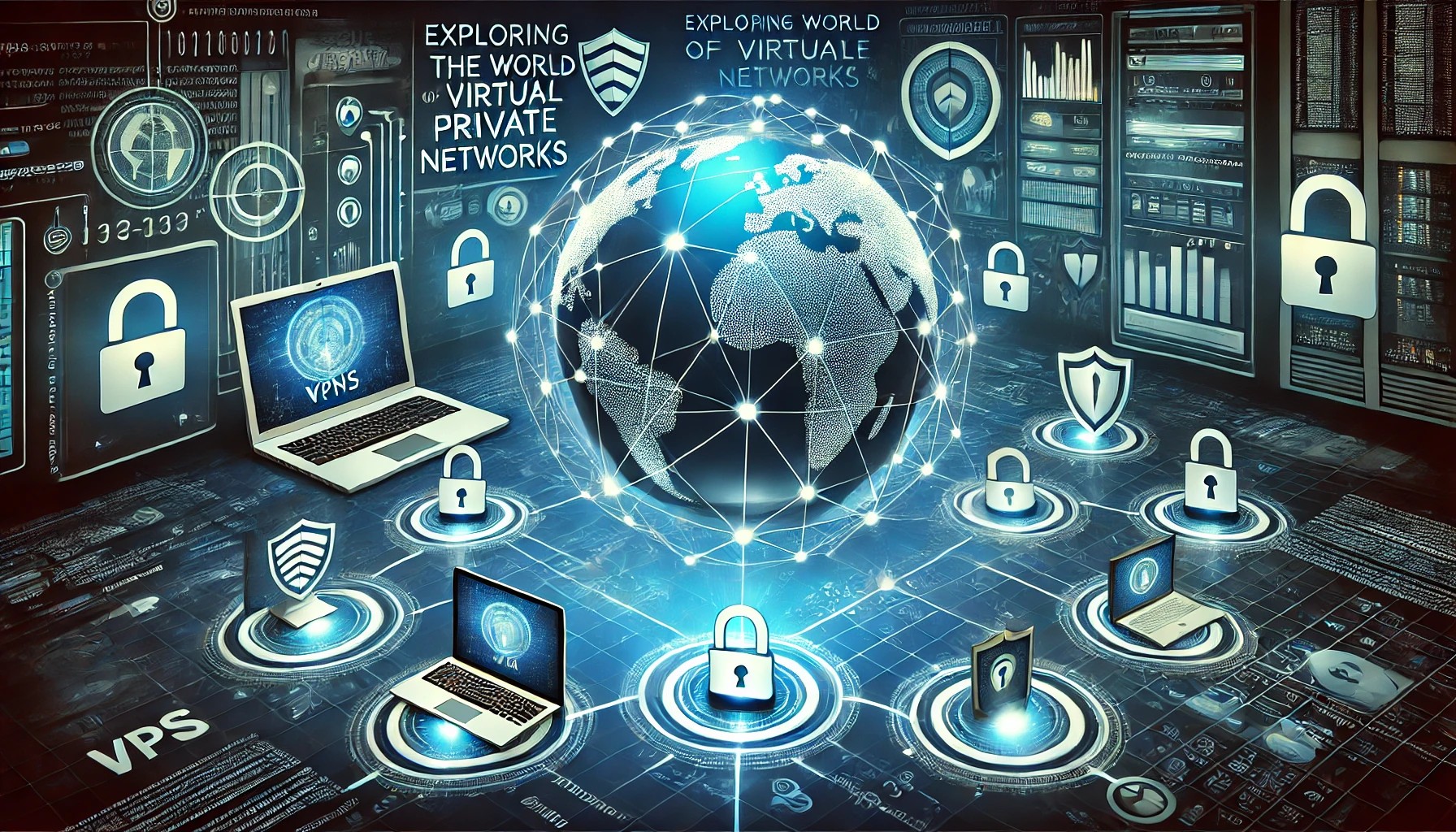In today’s increasingly interconnected world, maintaining privacy and security online is more important than ever. Whether you’re browsing the web, streaming content, or conducting business transactions, safeguarding your personal data from hackers, third-party trackers, and other prying eyes is paramount. One of the most powerful tools to achieve this level of protection is a Virtual Private Network (VPN). In this blog post, we’ll explore what VPNs are, how they work, and why they have become a must-have for anyone looking to protect their online privacy.
What is a VPN?
A Virtual Private Network (VPN) is a technology that creates a secure and encrypted connection between your device and the internet. It acts as a “tunnel” for your data, ensuring that your online activities remain private and secure from external threats. When you connect to the internet through a VPN, your device communicates with a VPN server, which then forwards your traffic to its destination. This process hides your real IP address and encrypts your data, making it difficult for anyone to trace your online activity.
How Does a VPN Work?
To better understand how a VPN works, let’s break it down step-by-step:
- Encryption: When you connect to a VPN, it encrypts your internet traffic, turning it into unreadable data. This encryption ensures that even if your connection is intercepted, the information cannot be easily accessed or understood.
- Server Connection: After encrypting your data, the VPN routes it through a remote server. This server acts as a middleman between you and the internet, so websites you visit will see the server’s IP address instead of your own. This helps mask your true location and adds an extra layer of anonymity.
- Decryption: Once your data reaches its destination (such as a website or service), it is decrypted back into readable form, allowing you to access the content you need.
This process makes it virtually impossible for third parties, such as hackers or government surveillance agencies, to monitor or track your online activities.
Why Do You Need a VPN?
There are several compelling reasons to use a VPN, whether you are an individual user, a business, or anyone concerned with online security:
- Enhanced Security: VPNs provide an added layer of security, especially when using public Wi-Fi networks in places like coffee shops, airports, or hotels. Without a VPN, your sensitive information is at risk of being intercepted by cybercriminals using techniques like man-in-the-middle attacks.
- Privacy Protection: VPNs mask your IP address, making it difficult for websites, advertisers, and even your internet service provider (ISP) to track your browsing habits. This means that you can maintain greater privacy while browsing the web.
- Bypass Geographical Restrictions: Many online services, such as streaming platforms (Netflix, Hulu, etc.), impose geographical restrictions on content. With a VPN, you can change your virtual location and access content that may not be available in your country. This opens up a world of entertainment and information at your fingertips.
- Avoid Censorship: In some countries, the internet is heavily censored, with access to certain websites or social media platforms restricted or blocked. VPNs enable users to bypass these restrictions and access the free and open internet, regardless of their location.
- Protection from Tracking: Advertisers and websites often use tracking cookies to collect data about your browsing behavior. A VPN prevents this tracking by masking your real IP address, ensuring that you remain anonymous while navigating the web.
Types of VPNs
There are various types of VPNs to suit different needs. Here are the most common types:
- Remote Access VPNs: These are the most common type of VPN and are typically used by individuals to connect to the internet securely. They allow users to access the internet as if they were in a different location.
- Site-to-Site VPNs: Primarily used by businesses, site-to-site VPNs connect entire networks together securely. This allows companies with multiple office locations to securely share resources and data over the internet.
- Mobile VPNs: Designed for mobile devices, these VPNs ensure that users can securely access the internet even while switching between networks, such as moving from Wi-Fi to mobile data.
- Cloud VPNs: Cloud-based VPNs are often used by businesses to provide secure access to cloud services and resources. They allow employees to securely access company data from anywhere in the world.
Choosing the Right VPN
With so many VPN services available, selecting the right one can be a challenge. Here are some factors to consider:
- Security Features: Look for VPNs with strong encryption methods, a no-logs policy, and advanced security protocols like OpenVPN or WireGuard.
- Speed: A VPN should not slow down your internet connection significantly. Choose a service that offers fast and reliable speeds to ensure a seamless browsing or streaming experience.
- Server Locations: The more servers a VPN provider offers, the more options you have for masking your IP address and bypassing geo-restrictions.
- Ease of Use: A user-friendly interface is important, especially for beginners. Make sure the VPN service you choose has apps for your devices and is easy to set up.
- Price: While there are free VPN options available, they may come with limitations such as slower speeds, fewer server options, or compromised security. Paid VPNs tend to offer more features and better overall performance.
Conclusion
In a digital world where cyber threats are a constant concern, using a Virtual Private Network is one of the best ways to secure your online presence and protect your personal data. Whether you want to browse anonymously, secure your connection on public Wi-Fi, or bypass geo-blocked content, a VPN can help you do so with peace of mind. By understanding how VPNs work and choosing the right service for your needs, you can take control of your online privacy and security like never before.
